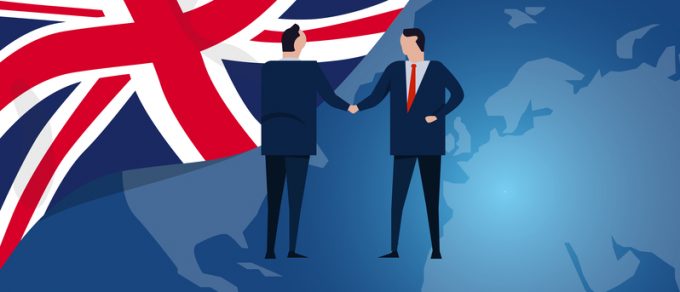Are UK businesses ready for safety and security declarations for EU imports?
Alex Pienaar, HM Revenue and Customs’ (HMRC) director of customs policy & strategy, explains what ...
PLD: REBOUND MATTERSAMZN: MULTI-BILLION LONG-TERM MEXICO INVESTMENTDSV: WEAKENING TO TWO-MONTH LOWSKNIN: ANOTHER LOW PG: STABLE YIELDAAPL: GAUGING EXPECTATIONSXOM: GO GREEN NOWKNIN: BOUNCING OFF NEW LOWS HON: BREAK-UP PRESSURECHRW: UPGRADESZIM: LAGGARDFWRD: LEADINGMAERSK: OPPORTUNISTIC UPGRADETSLA: GETTING OUTDSV: DOWN BELOW KEY LEVELLINE: DOWN TO ALL-TIME LOWS
PLD: REBOUND MATTERSAMZN: MULTI-BILLION LONG-TERM MEXICO INVESTMENTDSV: WEAKENING TO TWO-MONTH LOWSKNIN: ANOTHER LOW PG: STABLE YIELDAAPL: GAUGING EXPECTATIONSXOM: GO GREEN NOWKNIN: BOUNCING OFF NEW LOWS HON: BREAK-UP PRESSURECHRW: UPGRADESZIM: LAGGARDFWRD: LEADINGMAERSK: OPPORTUNISTIC UPGRADETSLA: GETTING OUTDSV: DOWN BELOW KEY LEVELLINE: DOWN TO ALL-TIME LOWS

Supply chain leaders have greeted the UK’s admission to the Comprehensive and Progressive Agreement for Trans-Pacific Partnership (CPTPP) with muted applause.
British prime minister Rishi Sunak announced today that the country had joined the 11-party trade bloc, claiming it would boost the bloc’s total GDP to £11trn.
However, director of the Global Shippers Forum James Hookham downplayed its benefit to UK trade. He told The Loadstar: “Trade negotiations need to think about the physical movement of the goods as well as the non-tariff barriers.
“Very rarely do you hear coverage of this and, through an analysis carried out by our partners at MDS Transmodal, we looked this morning at the available capacity between the UK and the 11 other countries in the pact, and it has plummeted over the past three years by 50%.”
Established in 2018, the bloc includes Australia, Brunei, Canada, Chile, Japan, Malaysia, Mexico, New Zealand, Peru, Singapore and Vietnam.
While capacity increased to Mexico (up 12%) and Peru (5%), Mr Hookham said there had been reductions between 2019 and 2022 of 18% to Canada, 28% to Australia and 40% to Malaysia, the bloc’s largest economies, despite a 17% upturn in UK exports.
“We’re moving more tradable goods to these nations, which is obviously a plus, and shows there is demand for British products beyond the service industry. But removing trade barriers alone does not generate trade,” he said.
“It is the practicalities of doing business in the country that traders will be more focused on, asking themselves ‘is it worth the hassle’, and governments need to have these trade frictions in mind when negotiating.”
Citing an agreement between Australia and South Korea, Mr Hookham said tariff barriers had been brought down but trade levels had failed to meet projections, because of licensing agreements and import forms, among other things.
Given the shortage of capacity, asked if it presented an opportunity for Britain to fill the void, Mr Hookham said it was, “of course, a possibility”. But, he added: “If you’re going to rely on growth coming from trade in overseas markets, you must acknowledge that you’ll become more and more reliant on the dynamics of the global container shipping industry.
“It is these figures – capacity, cost and bureaucracy – that will matter, as they will have more impact than tariffs.”
Although figures cited by Mr Sunak sounded impressive, with the bloc accounting for 13% of trade, the government’s own analysis suggests joining would add just 0.08% to the UK economy over the next decade – starkly contrasting the 4% lost after leaving the EU.
Nonetheless, describing the UK as at its “heart an open and free-trading nation”, Mr Sunak said the deal demonstrated the “real economic benefits of our post-Brexit freedoms”.
“As part of CPTPP, the UK is now in a prime position in the global economy to seize opportunities for new jobs, growth and innovation, with the CPTPP trade bloc putting the UK at the centre of a dynamic and growing group of Pacific economies,” he added.
“It is the first new nation and first European country to join. British businesses will now enjoy unparalleled access to markets from Europe to the South Pacific.”
Citing scant detail on what the deal amounted to, beyond tariff removals, left commentators unsure, one industry veteran telling The Loadstar it was simply “another load of bullshit”.
BIFA seemed slightly more upbeat; a spokesperson said if it delivered the economic and geopolitical boost government claimed, it would welcome it.
Comment on this article